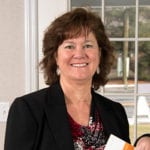How knowing clients’ children promotes asset retention
How knowing clients’ children promotes asset retention

Getting to know the children of clients isn’t just a way to promote goodwill for an advisory practice. Increasingly, it will have a major impact on asset retention as baby boomer parents transfer their wealth.
Parents appreciate these efforts, and children not only become more financially literate, but they may be more likely to become clients of the advisors themselves.
There is one very good reason to foster advisor relationships with clients’ children. We are in the greatest wealth transfer in U.S. history. It is estimated over $60 trillion will be transferred from more than 90 million American estates from 2007 to 2061, according to the Center on Wealth and Philanthropy at Boston College.
- From 2007 to 2061, heirs will receive $36 trillion through estates.
- Federal estate taxes will claim $5.6 trillion.
- Charities will receive $6.3 trillion from estates without a surviving spouse.
- An additional $20.6 trillion will be bequeathed to charities, including lifetime giving.
Source: Boston College Center on Wealth and Philanthropy, updated 2014.
“38% of investors retain the same advisor when their spouse dies. And that number drops to 29% when both parents have passed away and children inherit their assets.”
— Brie P. Williams
Head of Practice Management, State Street Global Advisors
What can be done to put the odds more in the financial advisor’s favor? Several successful advisors have shared their insights on this issue with Proactive Advisor Magazine.
 Larry Wall, CAP, CFP, works at Six8 Advisors in Hoover, Alabama, and says his approach is to involve not only clients’ children in the financial-planning process but also clients’ parents.
Larry Wall, CAP, CFP, works at Six8 Advisors in Hoover, Alabama, and says his approach is to involve not only clients’ children in the financial-planning process but also clients’ parents.
Wall remarks, “If this type of engagement is successful, it allows me to help different family members at various stages of their lives build the financial plans that are appropriate for their needs and objectives. It is also a sound practice management objective, allowing me to refresh my client base with a new generation of clients. That is very important given the changing demographics in our country.”
 Linda Persechino, founder of Persechino Financial in New Hartford, Connecticut, gets deeply involved with her clients’ lives, building lasting relationships that can ultimately cross generational lines. She says her goal with clients is to “continue the advisor-client relationship for years with their family.”
Linda Persechino, founder of Persechino Financial in New Hartford, Connecticut, gets deeply involved with her clients’ lives, building lasting relationships that can ultimately cross generational lines. She says her goal with clients is to “continue the advisor-client relationship for years with their family.”
Persechino notes, “There are many non-investment-related things I do for my clients, such as making homemade soup for elderly clients, visiting clients in the hospital, helping technology-challenged clients find vacations and cars online, and—sadly—sometimes attending their funerals. I believe in being there for my clients through all stages of life.”
She adds, “As I learn more about my clients and their lives, they also learn more about me and my life. They realize that I want to help them financially and that I also care about them personally! My clients understand this, and because they do, they are happy and willing to refer me to their friends and family.”
 When bringing on new clients, Johnathon T. Davis, AIF, a financial advisor at JT Davis Asset Management, LLC, in Lexington, Kentucky, also tries to find ways to interact with the rest of the family, “fostering relationships with them well before their parents or grandparents pass away.”
When bringing on new clients, Johnathon T. Davis, AIF, a financial advisor at JT Davis Asset Management, LLC, in Lexington, Kentucky, also tries to find ways to interact with the rest of the family, “fostering relationships with them well before their parents or grandparents pass away.”
“I’ll ask for the dates of the birthdays for children, will reach out to them on their birthday, and I might even throw a birthday party for them,” Davis says. “My goal is to become a trusted family advisor.”
Moreover, Davis and his team are always open to the young adult child of a client “shadowing” for a few days at the firm to discover what the world of financial planning is all about. Davis and his team typically show the young adult the basics of what they do for clients and talk in general terms about how money is invested or deployed.
“I’m also a proponent of telling clients, if they haven’t done so already, to have ‘The Talk,’ and coordinate a frank discussion with their children when they are at an appropriate age about wealth preservation, stewardship, and giving back, particularly if they own a business,” he says.
When clients’ children are in their early teens, Davis may talk generally with them about saving, investing, and wealth preservation. But as they get older, he delves into more details, including talking about active investment management and risk management.
“Too often, Americans think about how much money they make in a particular year—but to best illustrate the concept of active management, I say it’s more about how much money they didn’t lose in a bad year,” he says.
“There is so much misleading information out there about active management, that if you make it as simple and practical as possible, it will be easy enough for teenagers to understand,” he says. “Just like building any other positive habits, if you train a child in the way he or she should handle money, when he is older he will likely return to it.”
 Timothy Lay, AIF, CFEi, principal advisor at TPA Financial in Sisters, Oregon, says that he offers to talk about money to his clients’ children as “a value-add service.”
Timothy Lay, AIF, CFEi, principal advisor at TPA Financial in Sisters, Oregon, says that he offers to talk about money to his clients’ children as “a value-add service.”
“I had one client who was a single parent, and she wanted me to have a conversation with her 17-year-old son about the impact of taking out a student loan to pursue an education degree,” Lay says. “We talked about how much money he would have to make to repay the student loan, and when he could eventually get to a place when he could save money.”
Lay and the client’s son then had a broader conversation about money and the basics about investing, briefly touching upon the concept of active management. “Then he asked if he could call me if he had other questions, and I said absolutely—and one day he might be a client,” he says.
Lay was also keen to have conversations about money with his own children. To aid in their financial education, he played games such as Monopoly and Cashflow for Kids by Robert Kiyosaki. Cashflow for Kids was created so that parents could have conversations with their children about financial concepts such as balance sheets, profits and losses, and the basics of investing.
“I wanted to make playing with money a fun experience because some of the biggest challenges in life almost always center around money; games help kids look at money from a different perspective,” Lay says. “Most families don’t talk about it around the dinner table, and when families do talk about money, it’s typically when something is going wrong with their money, or they don’t have enough money.”
“Parents need to have a real conversation with their children about the purpose of money and what it is all about,” Lay says.
 Having young adults and even teenagers present at client meetings “always helps with breaking down any barriers,” says Divam N. Mehta, CFP, ChFC, AIF, CFEi, founder of Mehta Financial Group, LLC, in Richmond, Virginia.
Having young adults and even teenagers present at client meetings “always helps with breaking down any barriers,” says Divam N. Mehta, CFP, ChFC, AIF, CFEi, founder of Mehta Financial Group, LLC, in Richmond, Virginia.
For example, if the purpose of the client meeting is to discuss saving for a child’s college tuition, then Mehta finds it beneficial to have “the subject of the program present.”
“With this type of dynamic, the young adults can visualize what exactly is being discussed and how the family is planning for their education,” he says. “In addition, by having these type of introductory meetings, young adults are more apt to transition to becoming a client, as they have already had some exposure from you to personal finance.”
Investing on their behalf is always a great tool to get young adults engaged, Mehta says. While many of his clients remain the owner of accounts for education, they designate their children as the beneficial owner. “By having this vested interest, young adults are more apt to remain disciplined in managing future financial events in their lives,” he says. “Furthermore, the children will also look to the family’s financial advisor as the main point of contact for those future events.”
 Michael Pennica, founder and president of Pennica Financial Group in Colorado Springs, Colorado, encourages older clients to bring their adult children to meetings, particularly if the parents are entering their senior years. If the children live in another state, Pennica tries to have meetings via teleconference calls or video call.
Michael Pennica, founder and president of Pennica Financial Group in Colorado Springs, Colorado, encourages older clients to bring their adult children to meetings, particularly if the parents are entering their senior years. If the children live in another state, Pennica tries to have meetings via teleconference calls or video call.
“With senior abuse a major topic and the industry attention to expose it, we believe it’s good to get to know the kids as much as we possibly can,” Pennica says. “It’s also good for estate planning, particularly if one of the children is going to eventually be the executor.”
Pennica also asks his clients for permission to include their adult children on the firm’s monthly email blasts that contain videos or links to educational articles about financial-planning issues. The intent is to build rapport, and some of the children have since become clients.
“If you talk to people and build a relationship with them, show them that you’re accessible and how concerned you are, there’s a good chance they’ll like and respect that and will want to do business with you at some point in time,” he says.
Pennica sometimes has discussions with clients’ children about actively managed investment strategies versus passive investment management. This discussion helps demonstrate how his firm can bring additional value, particularly when younger people question why they would need an advisor when they can just invest online.
“Millennials are very tech savvy, but they don’t really understand how advice plays into this entire picture,” he says. “I talk to them about how we differentiate ourselves from robo advisors, and how we can give advice that can be beneficial for their entire financial picture.”
***
It makes sense for financial advisors to connect with their clients’ children, even when they are very young. Advisors can help parents educate children on the basics of saving and budgeting, adding more sophisticated topics—including the prudence of active portfolio management—as they get older.
Smart advisors also keep adult children in the loop on how their senior parents are managing a financial plan and their investments, which can generate additional goodwill for the advisory practice by demonstrating how the firm adds value for clients. Advisors may be rewarded for fostering long-term relationships with clients’ children when they eventually opt to become clients themselves.
 Katie Kuehner-Hebert is an award-winning journalist with more than three decades of experience writing about the financial-services industry. She has expertise in banking, insurance, financial planning, economic development, and employee benefits, and her work has appeared in many leading publications.
Katie Kuehner-Hebert is an award-winning journalist with more than three decades of experience writing about the financial-services industry. She has expertise in banking, insurance, financial planning, economic development, and employee benefits, and her work has appeared in many leading publications.
